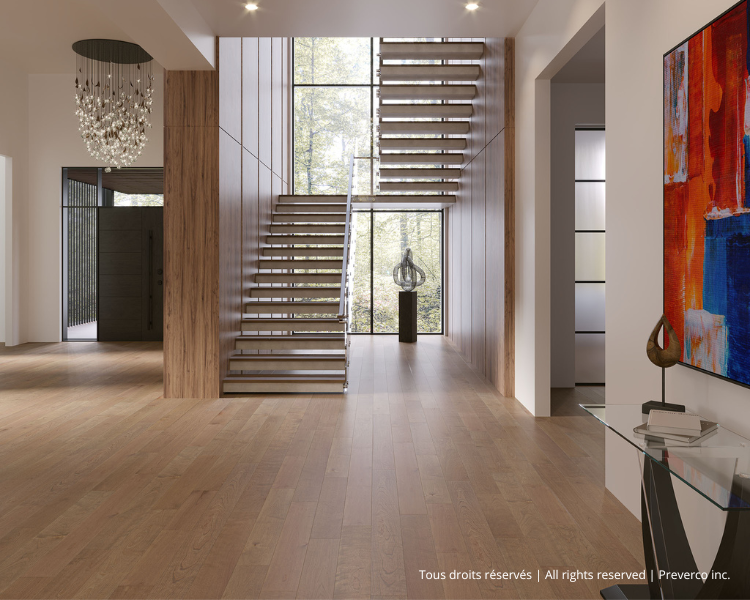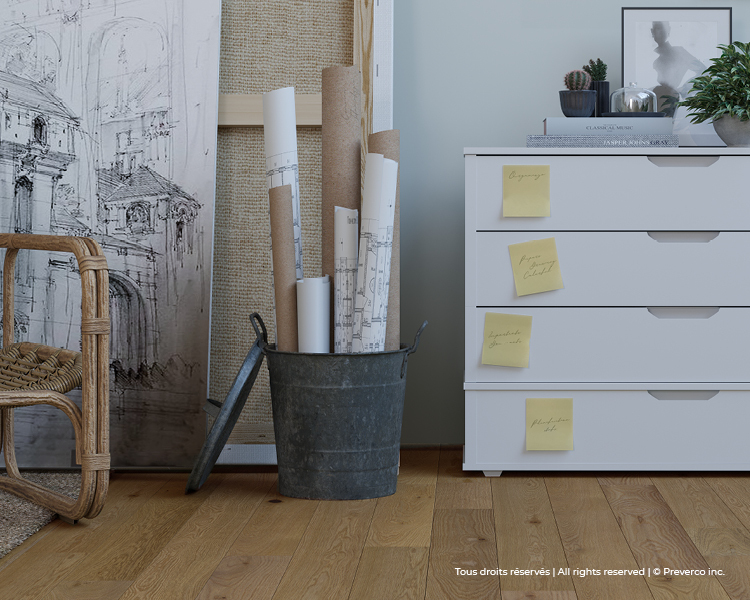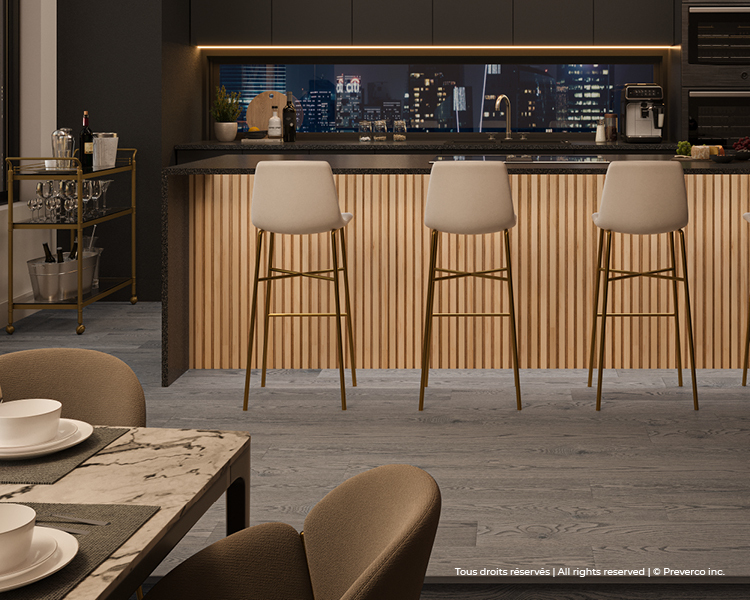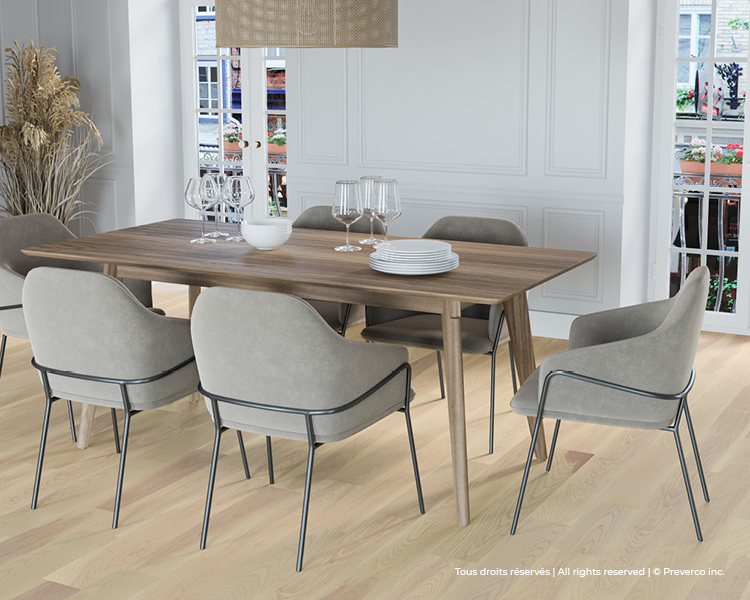
When upgrading your space, hardwood flooring stands out as a timeless option. But deciding between solid hardwood and engineered hardwood flooring can feel overwhelming. Both bring natural beauty, but they differ in construction, durability, and suitability for various rooms. In this guide, we’ll walk you through the pros and cons of each option, helping you make the right investment for your home. Ready to upgrade your flooring? Visit one of our two Edmonton locations today for expert advice and to explore premium hardwood flooring options!
Understanding the Basics: Solid vs. Engineered Hardwood Flooring
Both solid and engineered hardwood flooring offer the warmth and elegance that many homeowners crave. However, their key difference lies in their construction.
Solid hardwood flooring is made from a single piece of wood. Solid hardwood typically comes in thicknesses of ¾ inch, and can be sanded and refinished multiple times, making it ideal for those looking for longevity. On the other hand, engineered hardwood flooring
consists of a top veneer of real wood, layered over plywood or high-density fibreboard (HDF). The layered design provides increased stability, making it a better option for areas exposed to moisture or temperature fluctuations.

Durability: How Do They Hold Up Over Time?
When it comes to durability, both types of hardwood flooring perform well, but in different ways. Solid hardwood can last for decades with proper care. Since it can be sanded and refinished repeatedly, it’s a great long-term investment. However, it may expand or contract in response to humidity, making it less suitable for moisture-prone areas like basements. Engineered hardwood flooring is designed to handle environmental changes better. Thanks to its layered construction, it’s more resistant to warping or shrinking, especially in rooms with fluctuating temperatures or humidity. For high-traffic areas like hallways or living rooms, both options are suitable. However, if you live in a climate with extreme seasonal changes, engineered hardwood may offer better peace of mind.
Room-by-Room Suitability
Different rooms require different flooring solutions. Here’s a breakdown to help you choose the right type for each space:
Living Rooms and Bedrooms: Both solid and engineered hardwood flooring are excellent choices, as these areas don’t typically experience high moisture levels.
Kitchens and Entryways: Since these areas are prone to spills, engineered hardwood flooring is often the safer bet.
Basements and Bathrooms: Solid hardwood is not recommended here due to the potential for moisture damage. Engineered hardwood’s moisture resistance makes it a better option, although even it should be used with care in bathrooms.

Cost Comparison: What’s the Better Value?
The cost of hardwood flooring can vary widely based on the wood species, finish, and installation requirements.
The upfront cost of solid hardwood flooring tends to be higher due to the use of full planks. However, the ability to refinish the flooring several times can extend its lifespan, offering long-term value. Engineered hardwood, however, is usually more affordable initially and often easier to install. While it may not last as long as solid hardwood, high-quality brands like Preverco offer engineered products with impressive durability.
Both types can significantly boost your home’s value, especially in high-end markets. Solid hardwood may provide a slight edge in terms of resale value, but engineered hardwood flooring is increasingly popular for its practicality.

Moisture and Climate Considerations
Your local climate plays a crucial role in determining the best flooring option.
Engineered hardwood flooring is a smarter choice in more humid environments because of its ability to resist expansion and contraction. In drier climates, solid hardwood flooring works well, provided humidity levels are carefully managed indoors. You can use a humidifier in winter months to prevent the wood from drying out and shrinking. If you’re unsure which option suits Edmonton’s climate, our team can help you assess your needs and find the right product for your home.

Which Hardwood Flooring Should You Choose?
Ultimately, the choice between solid and engineered hardwood flooring depends on your priorities. If you value longevity and the ability to refinish over time, solid hardwood might be the right fit. But if moisture resistance and ease of installation are key factors, engineered hardwood flooring offers a practical solution. With trusted flooring companies like Preverco available, you’re guaranteed both quality and style, no matter your choice. Ready to transform your home with stunning hardwood flooring? Visit us today to explore our wide range of options and get expert recommendations tailored to your Edmonton home.

